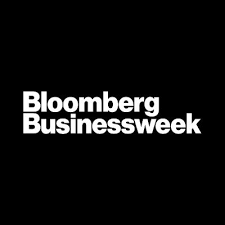
Weekly Business Insights from Top Ten Business Magazines | Week 333
Extractive summaries and key takeaways from the articles curated from TOP TEN BUSINESS MAGAZINES to promote informed business decision-making | Since September 2017 | Week 333 | January 26-Feb 1, 2024

Shaping Section | 3
How the West’s Favorite Autocrat Engineered Africa’s Most Dramatic Turnaround
By Neil Munshi and Simon Marks | Bloomberg Businessweek | January 25, 2024
Extractive Summary of the Article | Listen
Once a year, Paul Kagame, the longtime president of Rwanda, hosts a nationally televised program known as Umushyikirano – typically translated as National Dialogue Council. It’s a unique spectacle, drawing millions of viewers to what amounts to the ritual opening of a complaint box. Kagame assembles politicians and public servants in the Kigali Convention Center, then relays criticisms of their performance and of programs they oversee, sent in via social media or from meeting halls across the country. He calls them to account, often in humiliating fashion.
Umushyikirano—it’s typically translated as National Dialogue Council—serves as an annual reminder of Kagame’s power, as well as the two sides of the equation that has helped him keep it: a ruthless focus on efficiency, laced with a large dose of fear. One Western diplomat, who requested anonymity to speak freely about another country, calls it both the stuff of dictators and a way of getting real results. “He really humiliates his ministers,” the official says. “It was very uncomfortable to watch, but it shows who’s the chief, who’s the boss. And he’s criticizing real shortcomings—not made-up ones for show.”
Kagame, 66, came to power in 1994 after fighting through the bush and liberating Rwanda from a government that had just engineered a genocide that killed an estimated 800,000 people, almost entirely from Kagame’s ethnic Tutsi minority. In the time since, he’s presided over a stunning transformation of a country that had essentially been abandoned by the world. Rwanda is landlocked and roughly the size of Belgium, with only 13 million people and none of the mineral riches of its larger neighbors. While some critics say the government manipulates statistics to embellish Kagame’s image, gross domestic product growth averaged 7.2% annually in the decade to 2019, and life expectancy jumped from 47.1 years to 66.4 between 2000 and 2019. The UN says Rwanda’s Human Development Index score more than doubled from 1990 to 2017—the world’s highest average annual growth rate. Foreign donors argue that the country’s paved roads and reliable electricity grid demonstrate that aid is spent as intended rather than finding its way into ministers’ pockets.
Over the decades, Kagame has become possibly the West’s most important African ally. Kagame is also the continent’s premier pan-Africanist, promoting intracontinental trade and visa-free travel. Supporters speak of the president as if he were a saint.
At the same time, Rwanda has become one of the world’s most polarizing nations—viewed from another angle as a Potemkin village led by an authoritarian monster. Kagame has essentially outlawed political opposition, backing his suppression of dissent with what critics including South Africa’s justice ministry, Human Rights Watch and British police say is a global assassination program, which one nongovernmental organization estimates has claimed the lives of hundreds of dissidents.
The new government rebuilt institutions that had been shattered or had never existed: ministries, the police force, the civil service. And it held a national dialogue that created the foundation for modern Rwanda. A constitution adopted in 2003 enshrined nine “homegrown solutions” from precolonial Rwanda—including Umushyikirano, “Abunzi” mediation committees, “Gacaca” community courts and “Imihigo” performance contracts—that supporters argue have driven its success. Kagame’s domestic priorities follow from that premise: good governance, merciless efficiency and focused development.
Perhaps the most remarkable sign of Kagame’s branding success is Rwanda Cooperation, a consultancy the government established in 2018 to show other African officials how the country operates. It was created, according to CEO Christine Nkulikiyinka, because Rwanda’s ministries were overwhelmed by requests from foreign counterparts seeking guidance.
Driving this is a cadre of young technocratic elites, true believers who came of age in the wake of the genocide. Many were educated in the West, with some drawing on philanthropic programs such as Bridge2Rwanda, a scholarship program that since 2007 has sent hundreds of promising locals to American schools, then encouraged them to return to rebuild their homeland.
For all Kagame’s successes in lowering maternal mortality, raising life expectancy and paving the roads, nearly 40% of his people live in poverty, a fifth are food insecure, and nearly a third of children under 5 are chronically malnourished, according to the World Food Program.
2 key takeaways from the article
- Kagame, 66, – Rwanda’s Presdient – came to power in 1994 after fighting through the bush and liberating Rwanda from a government that had just engineered a genocide that killed an estimated 800,000 people, almost entirely from Kagame’s ethnic Tutsi minority. In the time since, he’s presided over a stunning transformation of a country that had essentially been abandoned by the world. Gross domestic product growth averaged 7.2% annually in the decade to 2019, and life expectancy jumped from 47.1 years to 66.4 between 2000 and 2019. The UN says Rwanda’s Human Development Index score more than doubled from 1990 to 2017—the world’s highest average annual growth rate. Foreign donors argue that the country’s paved roads and reliable electricity grid demonstrate that aid is spent as intended rather than finding its way into ministers’ pockets.
- Supporters speak of the president as if he were a saint. At the same time, Rwanda has become one of the world’s most polarizing nations—viewed from another angle as a Potemkin village led by an authoritarian monster. Kagame has essentially outlawed political opposition, backing his suppression of dissent.
(Copyright lies with the publisher)
Topics: Africa, RAwanda, Economic Development, Poverty

Leave a Reply
You must be logged in to post a comment.